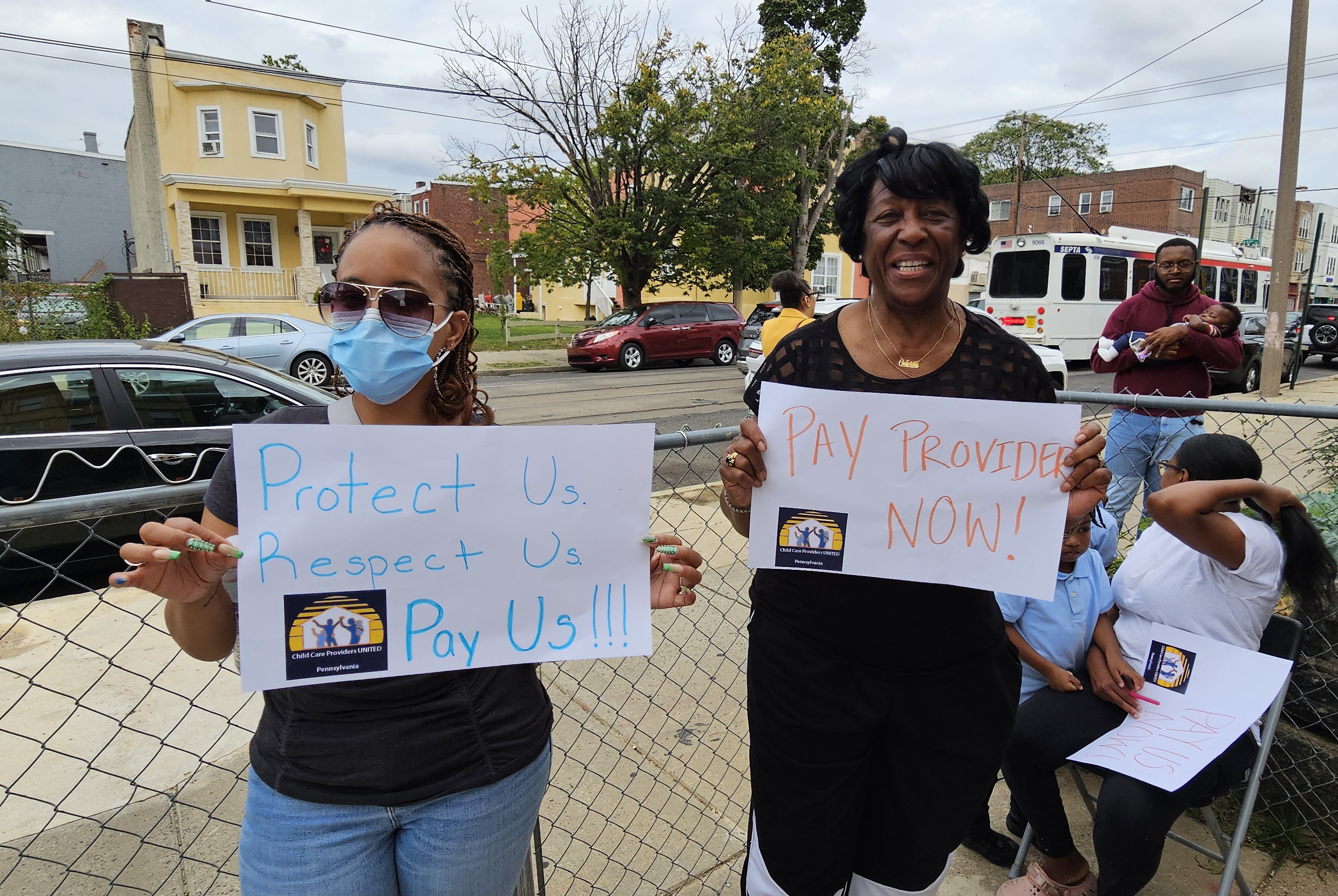
Many child care providers in Pennsylvania serve low-income families and receive child care subsidies from the state to maintain these vital community services. These payments are made by the state to the providers via a third party. Until now.
After the state of Pennsylvania switched payment vendors in the summer, Philadelphia-area child care providers have not received payment for their services. As of September, the vendor responsible for the missed payments, Caring People Alliance, had failed to send 150 providers their June payments.
The results have been devastating. Many providers have missed payments that have affected their credit scores, have paid late fees on rent and other business expenses and have lost staff due to their inability to pay wages. Some have had to close their doors, denying child care to families who rely on these services for their own wellbeing and ability to keep a job.
At a press conference in Philadelphia on Wednesday, members of Child Care Providers United – Pennsylvania (CCPU-PA/AFSCME) expressed anger and disbelief about a situation that no worker should have to face. Many child care providers are small business owners who rely on timely payments for their services to keep their doors open month to month.
"I don’t know of anybody in any job who would keep doing work without getting paid, or who wouldn’t get their paycheck in the first place,” said Henrietta Henry, a provider who was forced to close her doors to the families she serves. “And yet as child care providers, we are asked to pick up the pieces and provide critical services for free. I feel disrespected, angry and devastated at the results of this situation.”
Dez Shields, a child care provider and owner of the GLAd Center in Philadelphia, said she has been scrambling over the past couple of months to make ends meet but has reached a point where she can no longer move forward without the money owed to her.
“Because of nonpayment, I had to rely on others to help me, and at this point I have exhausted all resources and need payment ASAP to keep providing services to my community,” she said.
Many providers also complained about the lack of transparency from the state’s payment vendor, which has failed to give the providers clarity on when they may expect to be made whole.
“I rely on every paycheck to pay my staff person,” said Kathy Pugh, a child care provider for almost 20 years. “Because I haven’t received my June payment, she is looking to find a different job because I’m not able to support her. The lack of Caring People Alliance to provide transparency during this process has been devastating to my program.”
The providers emphasized the need for formal ongoing talks between their union, CCPU-PA, and the state to improve payment processes and vendor accountability to providers, stabilize the commonwealth’s provider infrastructure and ensure real-time communication on issues before they turn into a crisis.
“We rightfully are held to a high standard of accountability in the services we provide to the children of the commonwealth,” said Victoria Glover-Williams, another Philadelphia-area provider who has been affected. “We expect the same level accountability on the part of the vendors and the state in terms of their oversight. The system is currently too one-sided and at the end of the day, it’s the commonwealth’s families who suffer when providers are forced to shut down their businesses for not getting paid.”
CCPU-PA is exploring legal action if needed to resolve the issue.
“As a member of the union, I’m proud that we’re able to come together and support each other, and we are exploring what legal action can be taken to make sure we are reimbursed our June payment ASAP,” Glover-Williams also said. “We are looking forward to partnering with the state to make sure accountability is ensured.”
